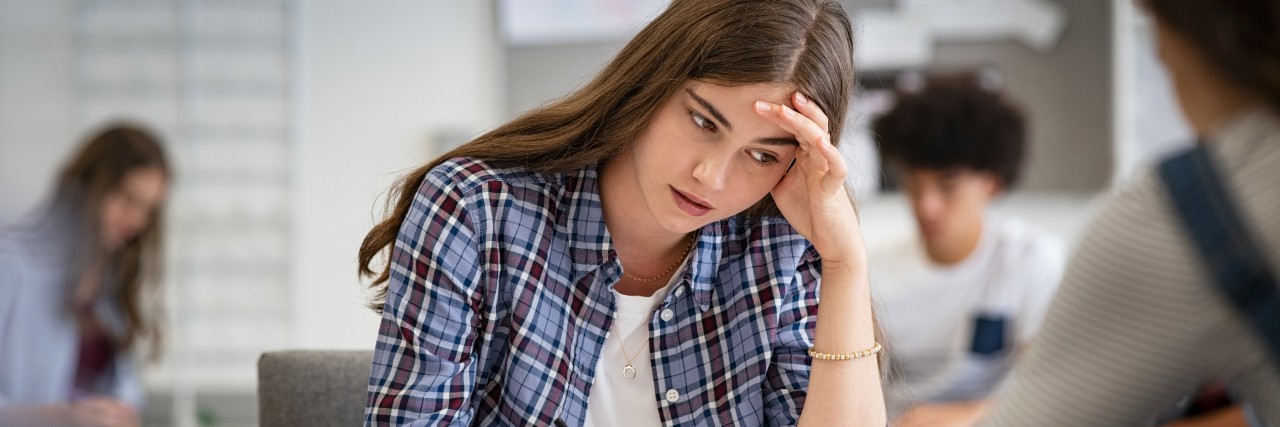Being diagnosed with fibromyalgia at age 19 wasn’t how I expected my entrance to adulthood would start. But it did, and now I am 21 years old, in pain every day, and trying to keep up with the fast-paced world of being in my 20s.
- What is Fibromyalgia?
- What Are Common Fibromyalgia Symptoms?
I was genetically more prone to having fibromyalgia due to my mother receiving her own fibromyalgia diagnosis in 2011. When my symptoms first started showing up, I went to my regular doctor to see what was going on, but she told me that I was “too young” to have fibromyalgia.
First off, ouch. My own understanding of what was happening to my body was already all over the place. Even to this day I still wonder, “Am I faking this?” but almost immediately after, I get a wave of pain in my back that reassures me my fibromyalgia is real and is always with me. Eventually, though, after seeing several doctors, I found one who would see me, and she finally “called the kettle ‘black.’” She told me my symptoms were indeed fibromyalgia, and together we worked to find a combination of medication that would ease my symptoms. Mind you, while these medications help me, the pain is still there.
Fast-forward to this year — I am a full-time student and a part-time student employee. My weekdays are full of activities that often cause my body to scream in pain. I also attend a college that is literally built on a hill, which means lots of walking uphill. This causes the back of my foot to feel as if the muscles are being ripped apart from each other. My shoulder sometimes aches from the weight of my bag, and when I get to class, I can’t pay as much attention as I would like to due to the severity of the pain.
My partner and I started discussing using mobility aids, such as a cane. I was extremely hesitant to accept this idea, as I did not want to be perceived as a “faker” or an “attention hog.” Because my condition isn’t visible, this conversation made me question myself at every turn. I eventually did buy a cane, but I am still sometimes ashamed to use it. Shortly after I purchased the cane, my partner and I began to discuss a disability parking placard for my car. Being able to park closer to the buildings would require less walking and therefore less pain.
I went to a new doctor because my previous doctor had left the state, I began to explain my diagnosis and my general back pain. When the doctor said she would approve the disability parking placard for my back pain but was hesitant to approve it for my fibromyalgia, my heart broke. I heard the doubt in her voice. Even though I got the placard, I felt so defeated.
Every day, I struggle with my pain, and every day, I struggle to believe it’s real. So many people have told me I am “too young” to have chronic pain, and I agree. I do feel “too young” to be in this much pain, but it doesn’t make the pain I experience any less real. The mental battle I have with myself because of my fibromyalgia is fierce, and the fire is only fueled by the negative thoughts others share.
So many people say being in your 20s is supposed to be one of the most fun and wild times of your life. But here I am pushing myself to be “normal” and trying to hide my chronic pain from others.
I want to start living my life unashamed of my disability. This is my first step, and I hope some of you can relate to the stress of not being able to trust your body and having doubts because of others’ reactions to you and your chronic illness. Our pain is valid, and we deserve to be recognized without doubt.
Getty image by Ridofranz.

